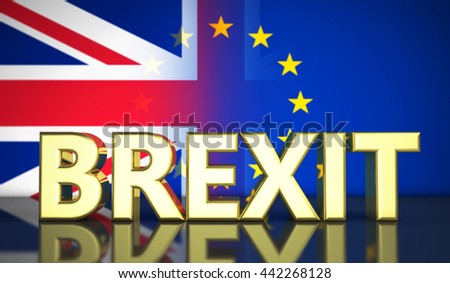The Brexit ended in the surprising break of the
United Kingdom from the European Union.
Rule Britannia!
The British people voted with their ballots, no
bullets needed, and shouted “F-U!” to the EU.
Another Glorious Revolution, akin to the change
of monarchical power in 1688. The British, after four decades of placid
restoration from the Puritan Republic, feared the looming imposition of James
the II, son of the more light-hearted Charles. His Catholic—read, statist—leanings
imperiled the new expansion of liberty within the realm. Popular sentiment
organized into another rebellion, with the aim of a new crown on the throne of
England, more subservient to the Parliament.
Without bloodshed or heart-ache, the despot
James II, pro-Catholic but anti-liberty, sensed that his time on the throne was
short.
He fled to France.
Three hundred years later, British citizens—not
subjects, and certainly not Europhile servants—sent the message loud and clear
to secular statists out to suppress their true identity and legacy: “We will
govern ourselves, respond to our own laws, and respect our judges. We will
secure our own borders, and continue to thrive in a growing international
market without your interloping.”
Bear in mind, Britain’s raging skepticism of
the European experiment was well-founded. Sluggish markets, bureaucratic
limitations, cultural stagnation, debilitating environmentalism—all with no say
from the individual nations—had pushed business owners, entrepreneurs, and
civil servants to the brink.
The Brexit had been gaining ground and grandeur
for the past two decades.
Nigel Farage, the leader of the United Kingdom
Independence Party, had launched the first broadsides from the side in 1992. The
momentum crept up. As global markets expanded then contracted, the need for
individual nation-states to take back their autonomy and destiny rang out
clearer than ever.
UKIP went from a merry band of marginal euroskeptics
to a robust mainstream movement, first in 2015 European Parliament elections,
where they joined the widening bloc of anti-centralization forces throughout the
continent. Their 2015 campaign for sits in Parliament was not successful on the
surface. They had two seats, lost one. However, the Tories, led by their
cost-cutting Prime Minister David Cameron capitulated to their demands for an
EU referendum for June 23, 2016.
On that Election Night (Britain’s New
Independence Day), Farage congratulated his many supporters, and the many voters
beyond them who declared their fealty to national sovereignty and individual autonomy.
This British Breakaway is more than a populist
revolt. This is not a temper-tantrum of desperate partisans who want the pain
to stop. This departure is also much more than farmers with pitchforks or angry
mobs demanding bread and looking for someone’s head to chop off. This final
exit is a restoration of British values, national pride, and a remonstrance to techno-bureau-aristocrats
intent on power at the expense of the people.
The eternal relevance of the Magna Carta shines
through, and the more perfect way is brightly before us. This wonderful and
unlikely fireworks display of local control flies in the face of two call
consuming agendas.
First, the smug globalists, the earnest Marxists,
and the left-wing elitists committed to a one-world government. The human
impulse to cherish local traditions, national identity, and local customs will
never leave man. The Communistic worldview has long adhered to the idea that
ethnic differences would phase away and monetary, fiscal, and class-based
conflicts would dominate world politics. Not the case. Britons voted “Leave”,
knowing full well that breaking away from the EU would mean rewriting trade
pacts with twenty-eight different countries. Their currency could take a hit,
but is already stabilizing. Besides, the thriving economies of Switzerland,
Guernsey, Iceland, and Norway should signal to any independent nation that
secure borders, individual currencies, and diverse contracts will engage and
enlarge their economic power, not diminish it.
Second, the sad defeatism of the conservative
pessimists has fallen away. Pamela Geller deserves recognition and praise for
her brave, political incorrect stance against Islam. And yet, she had lamented
that the West has lost the will to live. The terrorist attacks, and the tepid
response from the current leadership throughout Western Europe would disarm and
discourage many. But the cultural pessimists were wrong, too.
The “extreme right” parties have been extremely
right, as in correct, and have righted the ship of state in their own
countries. Their radical views—departure from central banking and domestic
policy. They not only embrace the will to live, but recall that Europe is more
than a geographical location, but an idea, a repository of Judeo-Christian
certainties which have thrived in spite of dark world.
The globalists and the pessimists have been
sent packing. The Brexit is the first of many signs to show that the fight for
grace and truth, liberty and justice in our time will not end in vain. The
Netherlands, France, and Italy are lining up next, demanding rigorous reforms.
France’s Front National (softened away from the ethnic hatred of previous
leaders) wants a free nation again one which does not shy away from its
glorious past to envision a glorious future. The Eastern Bloc has already secured
its borders.
Rather than a continuation of countries coming
together—as the resigned elitist historians had predicted—nation states are
growing smaller, or seeking independence rather than sheer size. Margaret
Thatcher was right, and her intuition has been rightly rewarded, despite
waiting thirty years for vindication.
With the fall of the European Union, will
Belgium even remain one nation after the disintegration of the European Union?
Spain has retained a national identity in part through forced fusion of
differing states from within, like Catalonia, Galicia, and the Basque
countries. Will they shift toward independence, too?
Smaller countries no longer have to fear
military domination from neighboring states. The disintegration of the
progressive, statist ideals signals a new birth of liberty and the advanced
technological advances, from finance to communications, will ensure a smooth
transition for all new states seeking greater autonomy over their own affairs.
From the Brexit breaks forth a new birth of
freedom.

No comments:
Post a Comment